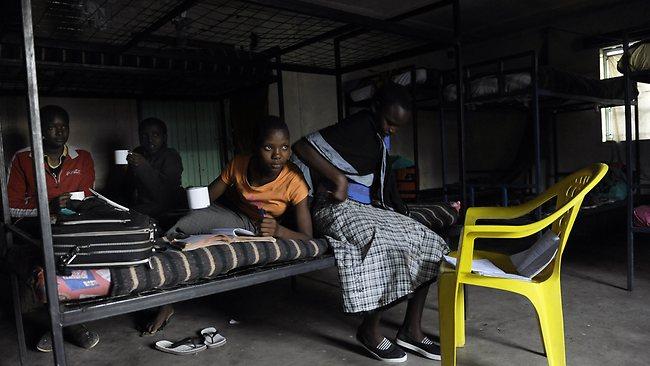
Leading Child Rights advocacy groups including the Liberia Child Rights NGO Coalition, Liberia Children Forum and members of the National Children and Youth Advisory Board have called on the Government of Liberia to ban the practice of Female Genital Mutilation (FGM).
In a joint statement issued recently in Monrovia, the rights groups called on the government to develop a legal framework in the Penal Code that explicitly criminalizes the practice of FGM including specific penalties.
The groups, in the statement read by the Executive Director of Defence for Children International (DCI), Atty. Foday M. Kawah also called for prioritizing the Strategy for the Protection of Girls against Child Marriage (2016) in conformity with the 2063 Agenda of the African Union and criminalize FGM.
In addition, the rights groups called for the Intensification of efforts to prevent and respond to SGBV, as well as to criminalize FGM in all circumstances and ultimately eradicate the practice.
In the process, they want the existing public awareness campaigns against FGM and other harmful traditional practices to be expanded to all the counties.
FGM involves the partial or total removal of external female genitalia or other injury to the female genital organs for non-medical reasons. It is widely practised in Liberia, and most young girls under 18 are the victims.
Anti- FGM campaigners have called for the total ban of the practice they say has no health benefits but a plethora of health implications.
In 2006, a study published by the World Health Organization shows that women who have had FGM are significantly more likely to experience difficulties during childbirth and that their babies are more likely to die as a result of the practice.
Other long-term consequences include anaemia, the formation of swelling and sores, keloid scar formation, damage to the urethra resulting in urinary incontinence, dyspareunia (painful sexual intercourse), sexual dysfunction, hypersensitivity of the genital area and increased risk of HIV.
But Many practitioners believe that the procedure is dictated by tradition and is necessary to ensure marriage. It is sometimes stated that the purpose of female genital mutilation is to control women’s sexuality to ensure premarital virginity and marital fidelity.
Despite huge pressure on the government from rights groups over the ban of the practice, the government stills lack the political will. It was only compelled to place a stay order on the practice through series of executive orders.

